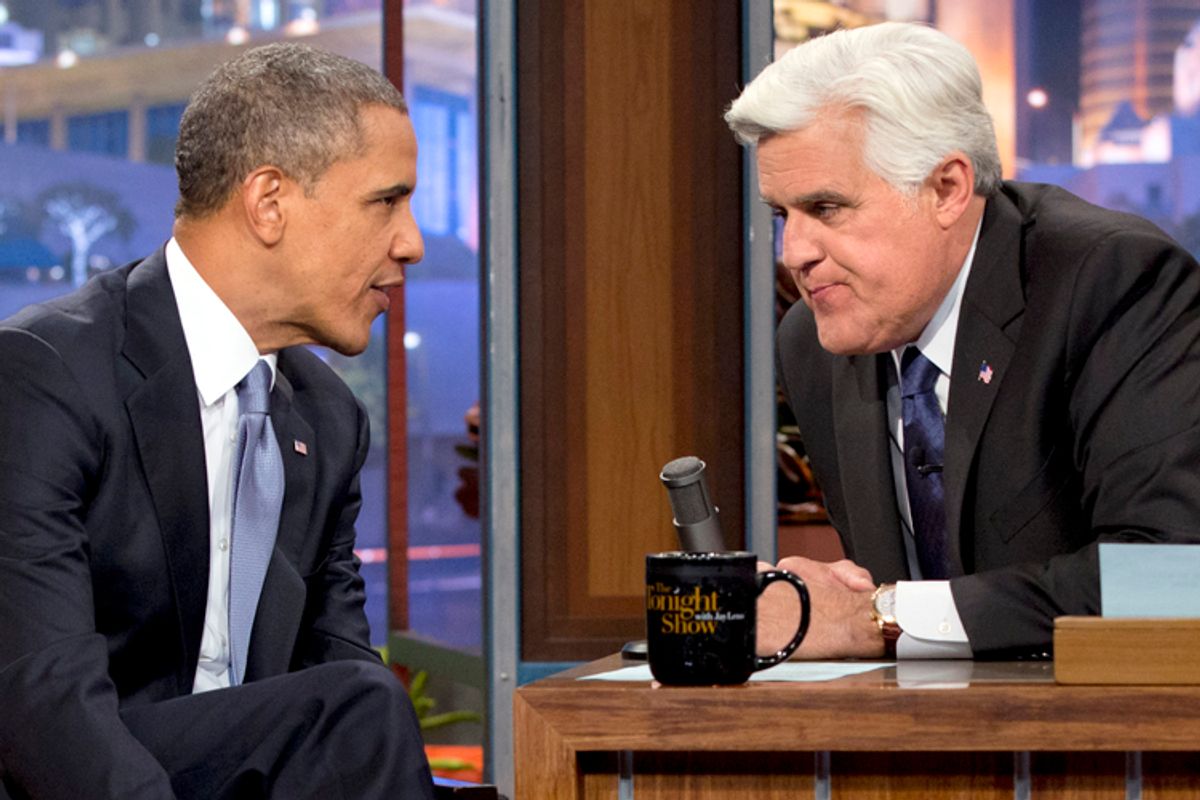Last week, President Obama misled the public when he told a comedian Jay Leno that protected legal channels exist that Edward Snowden could have used to challenge government misconduct:
I can tell you that there are ways, if you think that the government is abusing a program, of coming forward. In fact, I, through Executive Order, signed whistleblower protection for intelligence officers or people who are involved in the intelligence industry.
This message is false. And the President repeated it at his press conference a few days later. Obama is referring to Presidential Policy Directive #19. If the President had bothered to read his own Executive Order, he would have known that it was not implemented at all when Snowden blew the whistle on the National Security Agency. Further, it fails to provide protected legal channels to contractor positions such as Snowden’s.
Thomas Drake, a former senior executive at the NSA, is living proof of how insidious the “channels” argument is. Shortly after 9/11, he complained about NSA programs that were embryonic versions of what Snowden is now revealing. He complained that NSA foreign collection programs were being turned inward on Americans. One of those programs, Stellar Wind, stripped off data anonymization features, auditing trails, and other privacy protections that were available in a cheaper, effective, and non-intrusive program called ThinThread.
Drake complained to his boss, to the NSA Inspector General, and—with three other retired NSA colleagues and a former House intelligence staffer--to the Department of Defense Inspector General. The Inspector General substantiated their claims, but immediately classified its report to keep it out of public view. (Most portions are now unclassified and never had to be.)
Drake then served as a material witness in two key 9/11 investigations. He told Congress about multiple secret domestic surveillance programs, including Stellar Wind, and critical indications and warning intelligence about al Qaeda and associated movements pre- and post-9/11, which NSA did not share.
After the infamous New York Times article that revealed NSA’s warrantless wiretapping of Americans, the Justice Department launched an investigation—not of the U.S.'s vast lawbreaking, but for those who exposed the secret surveillance. That multi-million dollar investigation spanned five years, required five full-time prosecutors and 25 FBI agents.
Although Drake and his colleagues were not sources, they were made targets of this federal criminal “leak investigation.” The IG that had promised them protection and confidentiality sold them out to the Justice Department, and Congress failed to protect its witness, Mr. Drake. This was just one element of ruinous retaliation that went on for years and in some respects has not yet ended. Reprisals included getting fired, having security clearances pulled, armed raids on their' homes, shattered relationships with friends and family, and depletion of retirement accounts and second mortgages to pay attorneys’ fees.
Drake became the Obama administration’s first Espionage Act prosecution of someone accused of mishandling classified information. This draconian experiment soon escalated into a full-blown war on whistleblowers. The Drake case collapsed in spectacular fashion when the judge found that the information Drake possessed was completely unclassified, and had only been marked otherwise after it was seized from his home.
Around the same time, Senators Ron Wyden (D-OR) and Mark Udall (D-CO) claimed that the Justice Department had a secret, twisted interpretation of the Patriot Act that enabled domestic surveillance activities. Wyden said famously: "When the American people find out how their government had secretly interpreted the Patriot Act, they will be stunned and they will be angry."
Despite being treated unmercifully by the government, that fall, Drake and two of the same NSA colleagues with whom he blew the whistle, briefed Senators Wyden and Udall on the secret interpretation of 215. One of them, William Binney, had written the algorithm that was bastardized for use in a number of the secret surveillance programs. The result: Nothing.
Not only did going through proper channels provide no meaningful redress to the five whistleblowers' complaints, it gravely injured them. Drake lost his job, security clearance, and income stream, while simultaneously incurring half a million dollars in legal debt. And that was just during the investigatory phase. By the time of his indictment, he was declared indigent. Today, he works as a wage-grade employee at an Apple computer store, a far cry from his six-figure job at NSA.
Drake’s story puts the lie to the notion that internal channels serve as anything other than a trap for unwitting whistleblowers. What is so revealing is that if Snowden had gone through internal channels, the outcome would have been worse: the United States would have charged him with espionage and he’d be in jail for, in essence, spying on his own country on behalf of the public. It should not require martyrdom for a free citizen to challenge government abuses of power. It should not require choosing one’s conscience over one’s career, citizenship, or freedom.



Shares